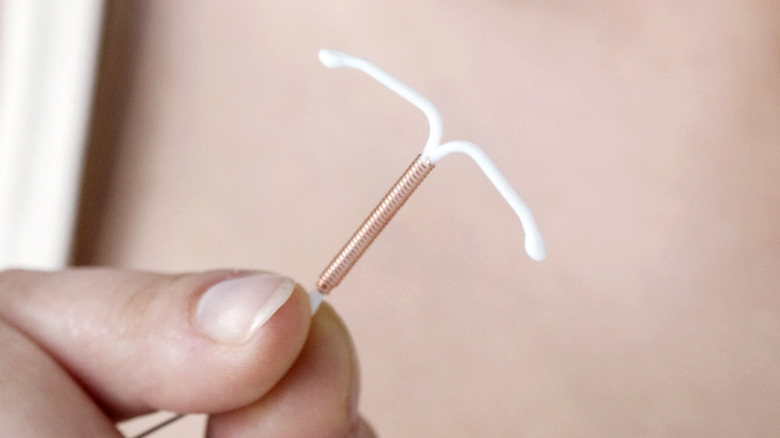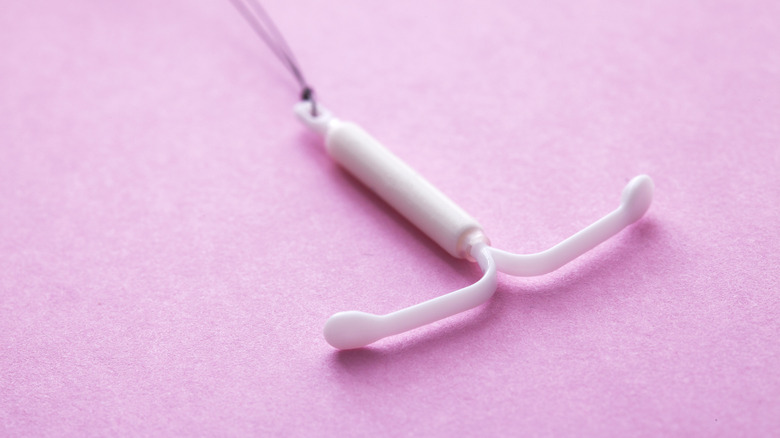Do IUDs Cause Weight Gain?
Weight gain is a common concern for many people when choosing a form of birth control. While this issue usually pertains to birth control pills, it can sometimes extend to intrauterine devices (IUDs). What exactly is an IUD and does it even affect your weight at all?
An IUD is a small T-shaped device inserted into the uterus to prevent pregnancy (via Healthline). It is considered one of the most effective types of long-term, reversible birth control. There are two types of IUDs: copper and hormonal. Copper IUDs are plastic devices with copper wire wrapped around them. They work by producing an inflammatory reaction in the uterus that is ultimately hostile and toxic to sperm.
Hormonal IUDs, on the other hand, are completely plastic and work to prevent pregnancy by releasing progestin into the uterus. This thickens the mucus in the cervix, preventing any sperm from reaching eggs. It also thins the lining of the uterus, which can help prevent eggs from being released in the first place.
Weight gain as a side effect of IUDs
For the most part, weight gain is not a major concern with IUDs. Copper IUDs do not even list weight gain as a possible side effect, and the risk of gaining weight after getting a hormonal IUD is relatively low (via WebMD).
"My experience is completely that weight gain is not an issue with [IUDs]," Dr. Henry Dorn, an OB/GYN in North Carolina, told WebMD. "The studies basically show that there's less than 5% [of IUD users] who show any weight gain, and it's generally a little water weight."
Hormonal IUDs release such a low amount of progestin into your system that any potential weight gain would be pretty minimal. Even then, it would most likely be the result of water retention, rather than body fat. In addition, gaining weight while using an IUD can often be coincidental, according to Dr. Dorn. "A lot of it is timing," he said. "A lot of it is, it coincides with the normal weight gain of maturity."


